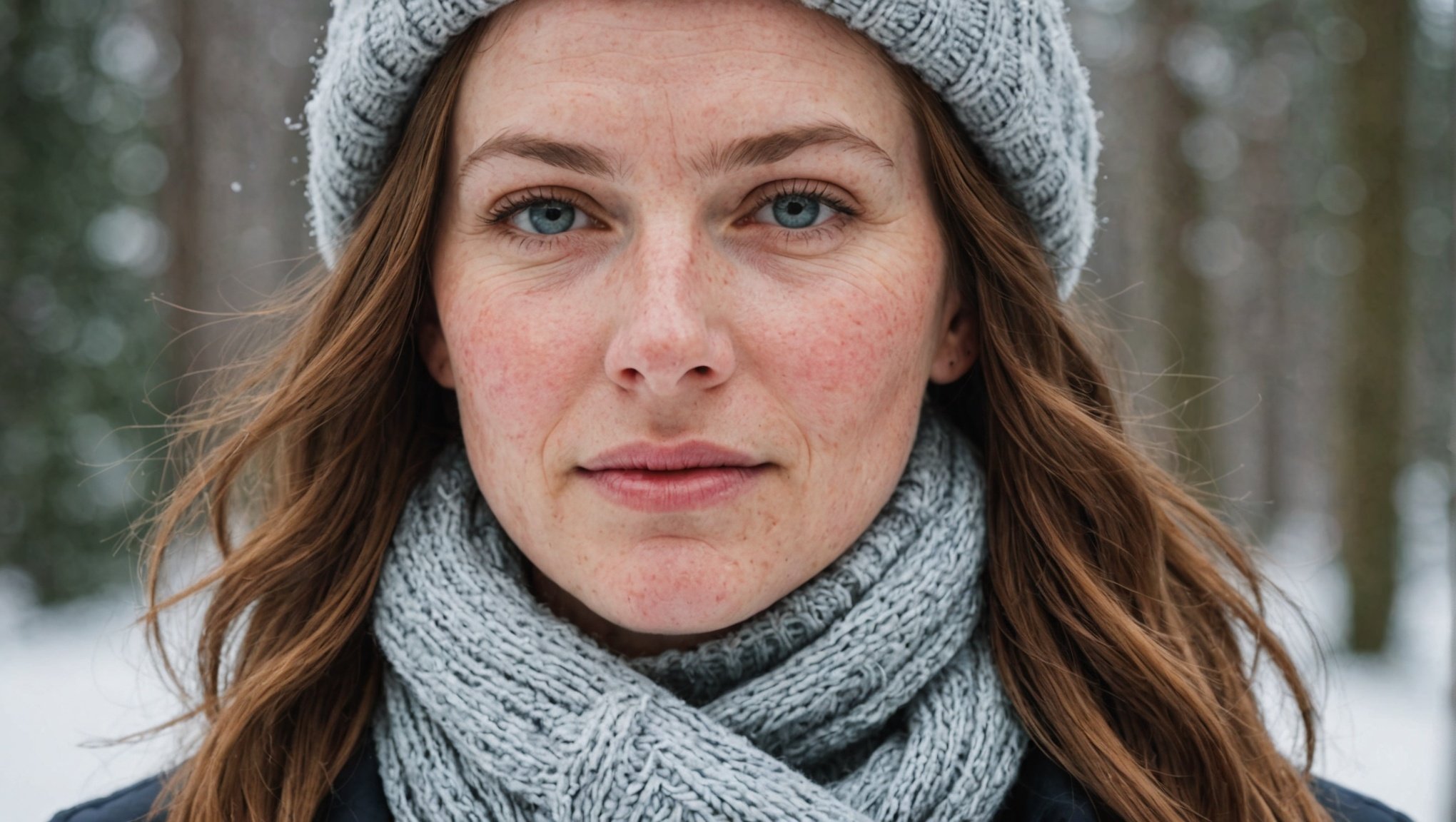Rosacea is a chronic skin condition that affects millions of people worldwide. It can cause redness, swelling, and skin eruptions similar to acne. While there isn’t a cure for rosacea, there are many treatments and products designed to manage its symptoms. However, the winter months can exacerbate rosacea, making it even more challenging for patients to keep their symptoms under control. This article will discuss how to properly care for your skin during the winter months to manage rosacea symptoms effectively.
Understanding the Impact of Winter on Rosacea
Winter can be a tough time for those with rosacea. Cold temperatures, high winds, and dry indoor air can all trigger a flare-up of symptoms. Understanding how the winter season affects your skin is crucial to developing a skincare routine that can help to manage these challenges.
Also to discover : How Can You Incorporate Eco-Friendly Fabrics into Your Spring Wardrobe for a Sustainable Fashion Statement?
When the temperature drops, the outer layer of your skin, also known as the skin barrier, can become compromised. This can lead to increased dryness and sensitivity. Additionally, the low humidity levels common during winter can further dry out your skin, making it more susceptible to irritation.
For rosacea patients, a compromised skin barrier can lead to more severe symptoms. This includes increased redness, itching, and inflammation. Therefore, it’s essential to take extra care of your skin during the winter months.
Also to discover : Can Meditation Help Reduce Shopping Impulses and Lead to More Mindful Fashion Choices?
Choosing the Right Skin Care Products for Rosacea in Winter
Selecting the right skincare products is vital for managing rosacea, especially during the harsh winter months. Opt for products specifically designed for sensitive skin or those labelled as suitable for rosacea patients.
When choosing a cleanser, look for gentle, non-drying formulas. Avoid ingredients that can irritate your skin, such as alcohol, fragrances, or harsh soaps. Cleansers with hydrating ingredients like glycerin or hyaluronic acid can help to maintain your skin’s moisture levels.
Next, consider a suitable moisturizer. A good moisturizer can help to strengthen your skin’s barrier and lock in hydration. Look for products containing ceramides, niacinamide, or hyaluronic acid. These ingredients can help to repair and protect your skin’s barrier, reducing the likelihood of a rosacea flare.
Importance of Hydration and Sun Protection for Rosacea Patients
Hydration and sun protection are two key factors in managing rosacea during winter. Even though it’s cold outside, your skin still needs plenty of water to remain hydrated and healthy.
Drink plenty of fluids throughout the day, and consider using a humidifier in your home to add moisture to the air. In addition, avoid taking hot showers or baths, as these can strip your skin of its natural oils, leading to further dryness.
Sun protection is just as crucial in winter as it is in summer. The sun’s UV rays can trigger rosacea symptoms, even on cold, cloudy days. Therefore, always apply a broad-spectrum sunscreen with an SPF of at least 30 to your face. Look for a sunscreen that is suitable for sensitive skin and does not contain irritating ingredients.
Consider Professional Treatment for Managing Rosacea
Despite your best efforts, you might still experience rosacea flare-ups during the winter. In such cases, it might be beneficial to seek professional help. A dermatologist can provide more advanced treatments and personalized skin care advice.
There are several medical treatments available for rosacea, including topical creams, oral antibiotics, or laser therapy. Your dermatologist can help you choose the best option based on the severity of your symptoms and skin type.
Always remember, managing rosacea is not a one-size-fits-all approach. It requires a combination of the right skincare routine, lifestyle modifications, and, if necessary, medical treatment. Therefore, try to stay patient and persistent with your efforts.
Adapting Your Lifestyle to Help Manage Rosacea Symptoms
Besides skincare, adapting your lifestyle can also help to manage rosacea symptoms during winter. This includes making dietary changes, managing stress, and avoiding known rosacea triggers.
Certain foods and beverages, such as spicy foods, alcohol, and hot drinks, can cause rosacea to flare. Therefore, try to limit your intake of these triggers during the winter months.
Stress is another common rosacea trigger. Engaging in regular stress-reducing activities, such as meditation, yoga, or reading, can help to keep your symptoms under control.
Lastly, remember to protect your face from the cold and wind. Wear a scarf or mask when you go outside, and try to avoid extreme temperature changes when possible.
In conclusion, managing rosacea during the winter months can be challenging, but it’s definitely possible. Tailoring your skincare routine, staying hydrated, protecting your skin from the sun, seeking professional help, and making lifestyle changes can all contribute to keeping your rosacea symptoms under control. So, don’t let winter get the best of your skin; take control of your rosacea today!
The Role of the National Rosacea Society in Managing Rosacea
The National Rosacea Society (NRS) plays a pivotal role in providing information and support to those dealing with rosacea. It offers a wealth of resources such as detailed guides, expert advice, and the latest research findings on rosacea treatments.
As part of their commitment to help people with rosacea, the NRS emphasizes the importance of a consistent skincare routine, especially during winter. They recommend using fragrance-free skincare products specifically designed for rosacea-prone skin, emphasizing ingredients like hyaluronic acid that can help repair and protect the skin barrier.
The NRS also recognizes that triggers for rosacea can vary significantly from one individual to the next. Therefore, they suggest maintaining a diary to identify potential triggers, which could include certain foods, stress, or environmental factors like cold weather.
In addition to skincare advice, the NRS also offers guidelines on lifestyle modifications that can help manage rosacea symptoms. These include tips on diet, stress management, and practical ways to protect your skin from harsh winter conditions.
The Psychological Impact of Rosacea and the Importance of Support
Living with rosacea can take a toll on mental well-being. Skin conditions like rosacea can lead to feelings of embarrassment, anxiety, and even depression. Therefore, it’s crucial to address the psychological aspects of living with rosacea along with the physical symptoms.
Joining a support group or community – whether online or in-person – can provide a safe space to share experiences and coping strategies. The National Rosacea Society offers resources to connect with others experiencing similar challenges, which can be immensely comforting and empowering.
Therapy or counseling can also be beneficial, especially if rosacea significantly impacts your quality of life. Mental health professionals can provide techniques to manage stress and anxiety, which in turn can help control rosacea flare-ups triggered by these emotions.
Remember, it’s not just about managing your skin – it’s about taking care of your overall well-being.
Conclusion: Taking Control of Your Winter Skin Care Routine
In conclusion, while managing rosacea during the winter months can be tough, a tailored skincare routine, hydration, sun protection, professional help, and lifestyle modifications can make a tremendous difference. By understanding how winter affects your skin, choosing suitable skincare products, and caring for your mental well-being, you can better control your rosacea symptoms.
The National Rosacea Society is a valuable resource that provides a wealth of information on effective skincare routines and lifestyle changes. Their advice can help keep your skin healthy and limit the frequency and severity of rosacea flares in winter.
Remember, despite the challenges, it is possible to manage rosacea effectively. With patience, perseverance, and the right approach, you can enjoy healthier skin during winter and beyond.











